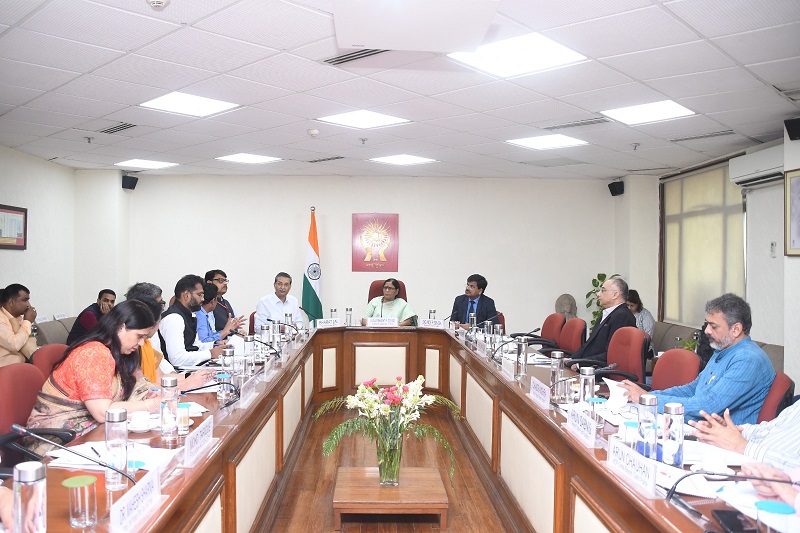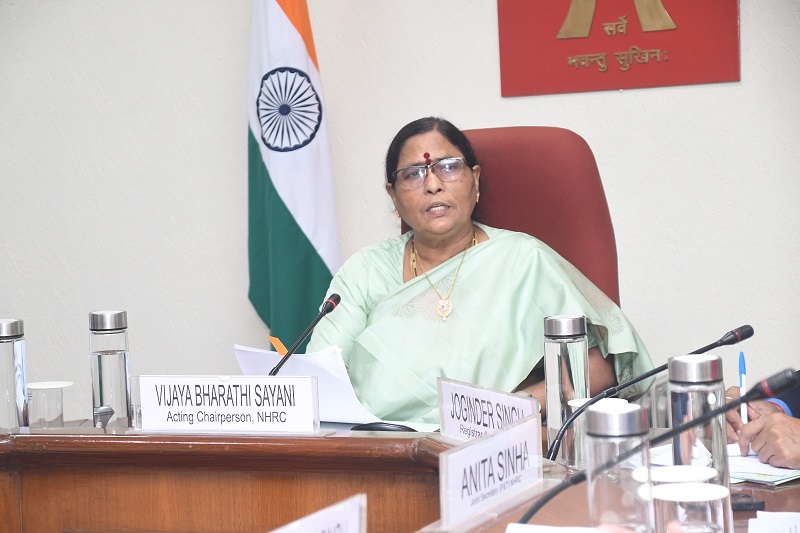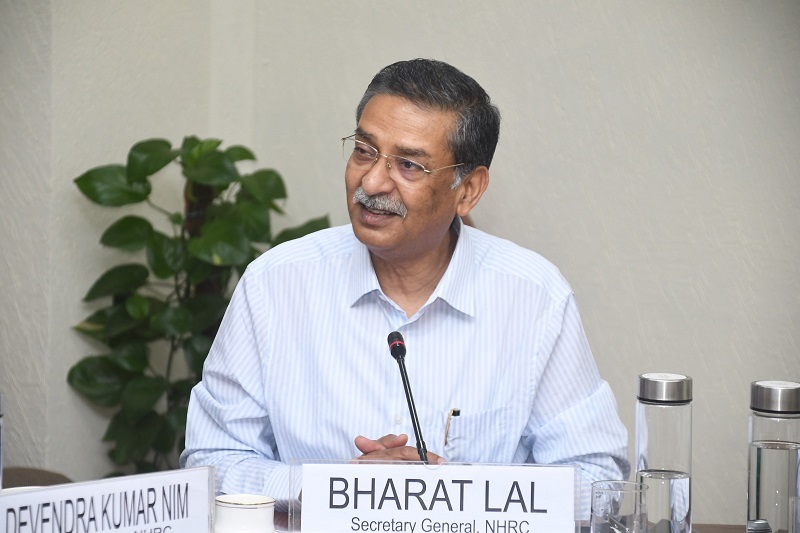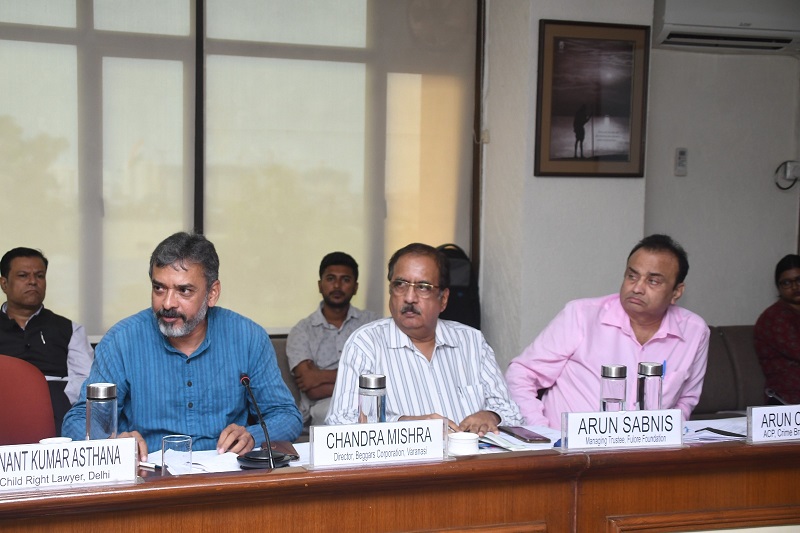NHRC, India organizes an open house discussion on preventing beggary and rehabilitation of individuals engaged in beggary
Press Release
National Human Rights Commission
New Delhi: 30th August, 2024
NHRC, India organizes an open house discussion on preventing beggary and rehabilitation of individuals engaged in beggary
Acting Chairperson, Smt. Vijaya Bharathi Sayani says, despite economic progress and several government initiatives, the continuing practice of begging indicates deep socio-economic disparities in the country
Secretary General, Shri Bharat Lal says, if 80 crore people in the country can receive free food grains, rehabilitation of about 4 lakh individuals engaged in begging should not be difficult
Among various suggestions, mapping of areas of high concentration of beggars, issuing Aadhar cards to them and de-criminalisation of begging highlighted
The National Human Rights Commission (NHRC), India organized an open house discussion on ‘Preventing beggary and rehabilitation of individuals engaged in beggary’ at its premises in New Delhi. Chairing it, NHRC, India Acting Chairperson, Smt. Vijaya Bharathi Sayani said that despite rapid economic progress and several initiatives and welfare programmes implemented by both the Centre and State Governments, the continuing practice of begging indicates deep socio-economic disparities in the country. As per the 2011 census, there were more than 413 thousand beggars and vagrants in India. They include women, children, transgender and elderly who are forced to beg for survival.

She said that earlier, giving and accepting alms was part of spiritual practices aimed at cultivating humility but these days an act of charity has detached from its original intent and become begging either due to poverty or criminal activities even involving the trafficking of persons including children for this purpose generating a substantial amount of money for their captors. Further, as a result of societal neglect, physically challenged individuals have no choice but to depend on others for survival and daily sustenance.

Smt. Vijaya Bharathi Sayani said that the Commission is dedicated to protecting the human rights of these individuals, ensuring they are treated with dignity and fairness. In this context, she also highlighted the importance of the Support for Marginalized Individuals for Livelihood and Enterprise (SMILE)-B Scheme, which focuses on the rehabilitation of individuals engaged in begging.
NHRC, India Secretary General, Shri Bharat Lal said that recently, the Commission issued an Advisory to the Centre and State governments and UT Administrations to develop strategies aimed at eliminating the need for begging and enhancing the quality of life for those involved in it. He also said that governments, especially in recent years, have been committed to continually improving the quality of life for citizens. There have been focused efforts to ensure universal access to basic services such as water, housing, and electricity. He pointed out that if 80 crore people in the country can receive free food grains, rehabilitation of about 4 lakh individuals engaged in begging should not be difficult.

Shri Lal said that if different stakeholders including civil society organizations worked together it should not be difficult to rehabilitate them. They can also have access to food grains, housing, electricity connections, toilets, and cooking gas by providing an Aadhar card to them.
Earlier, giving an overview of the open discussion, Shri Devendra Kumar Nim, Joint Secretary emphasized the need to re-evaluate existing laws and approaches, advocating for a shift from punitive measures to a focus on rehabilitation, in alignment with constitutional principles and recent court rulings. This shift offers a path to more effective and humane solutions to the issue of begging.
Shri Rajesh Kumar, Director of the Society for Promotion of Youth & Masses said that his organization has nearly achieved 100 percent Aadhar Card enrollment for the residents of their shelter homes. Shri Chandra Mishra, Director of Beggars Corporation Private Limited, shared how he is transforming beggars into entrepreneurs by involving them as stakeholders in his company.
The other participants included Shri Joginder Singh, Registrar (Law), NHRC, representative of the Ministry of Social Justice and Empowerment, Government of Bihar, Government of Rajasthan, Government of NCT of Delhi, NGOs, Academia, and eminent subject-matter experts.

Some of the key suggestions that emanated from the meeting include:
• Identify and map areas with high concentrations of begging, and conduct a survey of beggars to create a comprehensive database;• State governments should work towards issuing Aadhaar cards to all beggars, facilitating their access to social security schemes and benefits;
• Begging should be decriminalized, as punitive measures and rehabilitation efforts cannot be effectively combined;
• Beggars are not a homogeneous group; therefore, initiatives for them should be tailored to meet their individual needs.
*****







 राष्ट्रीय मानव अधिकार आयोग, भारत
राष्ट्रीय मानव अधिकार आयोग, भारत

